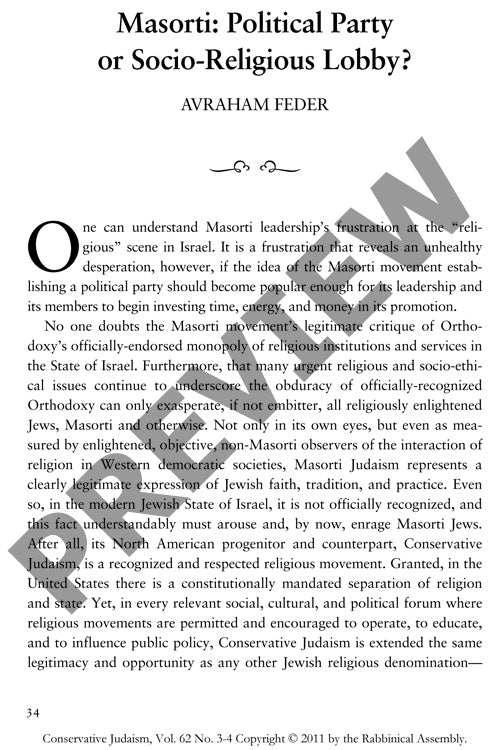Masorti Political Party or Socio Religio
Couldn't load pickup availability
The Masorti movement in Israel faces significant challenges regarding its institutional recognition and political influence within the Jewish state's religious landscape. This article examines the proposal by Michael Graetz for the Masorti movement to establish a political party as a means of gaining legitimacy, public funding, and policy influence. Through critical analysis of both theoretical and practical considerations, this study evaluates the viability and desirability of political participation versus alternative approaches to religious and social influence. The methodology employs historical analysis of Jewish religious-political relationships, examination of contemporary Israeli demographics, and assessment of the movement's current institutional capacity. Key findings reveal that the Masorti movement's limited constituency of approximately 12,000 dues-paying members presents substantial obstacles to achieving the minimum 40,000 votes required for Knesset representation. The analysis demonstrates that while the movement's critique of Orthodox monopolization of religious institutions is legitimate, forming a political party may compromise its prophetic mission and religious integrity. The study concludes that the movement would be better served by functioning as a socio-religious lobby, focusing on expanding its constituency through intensified educational programs and community building. Rather than seeking political power, the Masorti movement should pursue evolutionary change through increased kehillot establishment, enhanced institutional development, and maintenance of its prophetic role as moral critic of Israeli society, thereby building the foundation necessary for long-term religious and cultural influence.

More Information
-
Physical Description
-
Publication Information
Published 2011
ISBN
-
Publication Credits
Avraham Feder

